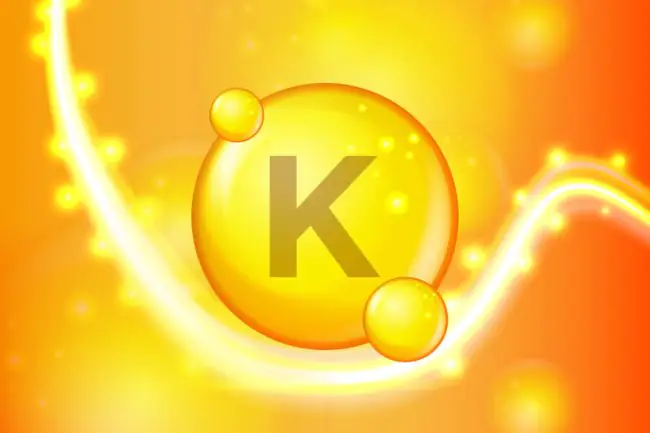Nocturnal leg cramps those painful, involuntary muscle contractions that often strike during the night are a common problem for adults.
They can disrupt sleep and cause discomfort, leaving many wondering how to reduce or eliminate them.
One potential solution gaining attention is a key nutrient that plays a significant role in muscle and nerve health.
This vitamin k in reducing nocturnal leg cramps may help reduce the frequency and intensity of cramps, the science behind its effectiveness, and how you can add it to your daily routine for better leg health.
What Are Nocturnal Leg Cramps?
Nocturnal leg cramps are sudden and intense muscle contractions that typically affect the calf muscles, though they can also impact the thighs or feet.
These cramps are often more intense at night, causing severe pain that can wake a person from sleep.
While these cramps can occur for a variety of reasons, they tend to become more frequent with age, affecting adults over 50 more commonly.
The Causes of Nocturnal Leg Cramps
Leg cramps can be caused by several factors, with the most common being dehydration, muscle fatigue, and imbalances in electrolytes such as potassium, calcium, and magnesium.
In some cases, underlying medical conditions such as peripheral artery disease, diabetes, or nerve compression in the spine can contribute to the frequency of cramps.
While lifestyle factors play a significant role in leg cramps, they may also be linked to insufficient levels of certain vitamins and minerals in the body.
The Role of Vitamin K in Muscle and Nerve Health
Vitamin K is a fat-soluble vitamin that plays an important role in regulating calcium in the body and supporting bone health.
It is also essential for muscle function and nerve health. Although its primary role is related to blood clotting, it is increasingly recognized for its influence on muscle relaxation and nerve signal transmission.
The most well-known forms of this nutrient are Vitamin K1 (phylloquinone) and Vitamin K2 (menaquinone).
Vitamin K1 is primarily found in leafy greens like spinach and kale, while Vitamin K2 is often found in fermented foods and animal products.
How It May Help with Leg Cramps
This nutrient’s potential to reduce nocturnal leg cramps is related to its role in regulating calcium within muscle tissues.
Proper calcium balance is essential for muscle contraction and relaxation. A deficiency in this vitamin can disrupt this balance, leading to muscle cramps and spasms.
By ensuring adequate levels, individuals may help their muscles function more smoothly, reducing the frequency and intensity of cramps.
Scientific Insights: The Nutrient and Leg Cramps
While research on its direct effect on leg cramps is still emerging, several studies suggest that this vitamin may help support muscle function by improving calcium metabolism in the muscles.
There is a connection between its deficiency and an increased risk of muscle cramps, suggesting that maintaining adequate intake could play a role in preventing or reducing cramps.
Experts believe this vitamin may also aid in improving nerve health, which could help in reducing the discomfort associated with muscle spasms.
More research is needed, but the current evidence suggests that ensuring sufficient intake could be an effective tool in managing nocturnal leg cramps, particularly for older adults.
Dietary Sources of Vitamin K
One of the best ways to add this vitamin to your routine is through dietary sources. Both Vitamin K1 and Vitamin K2 are found in various foods, making it easy to boost your intake naturally.
- Vitamin K1 (Phylloquinone): Leafy greens such as kale, spinach, and Swiss chard are packed with Vitamin K1. Other sources include broccoli, Brussels sprouts, and cabbage.
- Vitamin K2 (Menaquinone): This form of Vitamin K is found in fermented foods like natto, sauerkraut, and certain cheeses. Animal products like liver and egg yolks are also good sources.
For those who may have trouble getting enough through food alone, supplements are widely available.
Supplements come in both forms: K1 and K2, and both may offer benefits for individuals seeking to improve their leg health.
Adding Vitamin K to Your Diet
If you’re looking to reduce nocturnal leg cramps, a simple and effective way is to ensure you’re consuming a balanced diet rich in this nutrient.
For example, you can start your day with a smoothie made from leafy greens like spinach and kale, or add a side of sautéed broccoli to your dinner. Fermented foods like kimchi and sauerkraut are also great sources.
If you’re considering taking supplements, consult a healthcare provider to determine the appropriate dosage and to ensure that it won’t interfere with any other medications or conditions you may have.
Practical Tips for Adults with Nocturnal Leg Cramps
While this vitamin can play a key role in reducing leg cramps, a holistic approach is often the best way to manage this condition. Here are some additional strategies that can help:
- Stay Hydrated: Dehydration is a major cause of leg cramps. Make sure you drink plenty of water throughout the day, especially before bedtime.
- Maintain a Balanced Diet: In addition to Vitamin K, ensure your diet includes sufficient levels of electrolytes like potassium, magnesium, and calcium, which are essential for muscle function.
- Exercise Regularly: Regular physical activity can help prevent muscle fatigue and improve circulation, reducing the chances of cramps at night. Stretching your legs before bed can also help reduce tension in the muscles.
- Use Proper Footwear: Wearing supportive shoes, especially if you’re standing for long periods or engaging in physical activity, can prevent cramps caused by muscle strain.
- Gentle Massages: If cramps do occur, massaging the affected area gently can help relax the muscles and relieve pain.
When to Seek Medical Advice
If your leg cramps are frequent, severe, or accompanied by other symptoms such as numbness or tingling, it may be time to consult a healthcare provider.
While occasional cramps are common, persistent or severe cramps could be a sign of an underlying condition that needs medical attention.
A healthcare provider can help assess your nutrient levels and recommend appropriate treatment, whether through dietary changes, supplements, or other interventions.
Conclusion
Vitamin K is an essential nutrient that holds promise as a natural remedy for reducing nocturnal leg cramps in adults, particularly by helping to regulate muscle function and nerve signal transmission.
While more research is needed to fully understand its role, the evidence so far suggests that ensuring adequate intake through diet or supplements may be an effective way to reduce the frequency and intensity of leg cramps, helping adults achieve more restful sleep.
By integrating it into a broader approach that includes hydration, balanced nutrition, and lifestyle changes, you can support healthier leg muscles and improve your overall well-being.
FAQs
What vitamin stops leg cramps at night?
Certain vitamins, including Vitamin K, may help prevent leg cramps by regulating calcium levels and improving muscle function.
What are the symptoms of Vitamin K deficiency in adults?
Symptoms can include easy bruising, excessive bleeding, and muscle cramps.
How do I stop cramps in my legs at night?
Stay hydrated, stretch your muscles, and ensure you’re getting enough of the key nutrients, including Vitamin K.
Is Vitamin K good for leg cramps?
Yes, adequate intake of Vitamin K may help reduce the frequency and severity of leg cramps by supporting muscle and nerve health.







